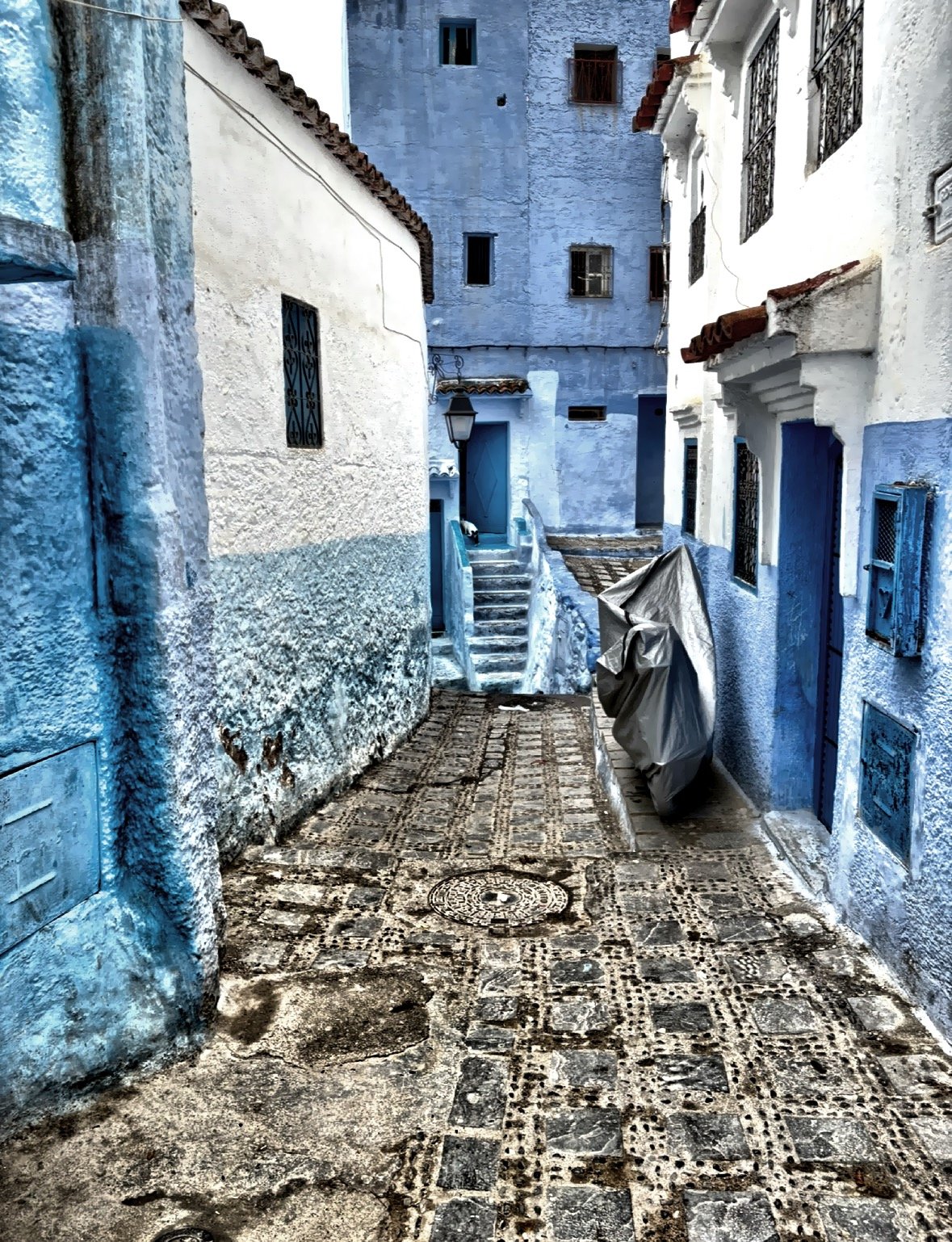Morocco’s ‘Blue City’- Chefchaouen
Chefchaouen, often referred to as the "Blue City" of Morocco, is renowned for its vibrant blue-washed buildings and stunning mountainous backdrop. Founded in 1471, it initially served as a strategic defense point against Portuguese invasions. As the centuries went by, the city became a refuge for Muslim and Jewish communities fleeing persecution, leading to a rich tapestry of cultural influences that can still be felt today.
The iconic blue color adorning the city's buildings can trace its origins back to the 1930s when Jewish refugees fleeing Nazi Germany introduced this striking hue. The traditions surrounding the blue painting have continued, with local authorities distributing paintbrushes every spring to encourage residents to maintain the vibrant appearance of their homes. Various theories regarding the reasons for this distinctive color choice: some believe it represents the sky, fostering a spiritual connection to the divine; others suggest it helps keep the buildings cool during hot summers or even deters mosquitoes that were carrying malaria.
Visitors here are treated not only to its captivating color palette but also to a labyrinth of narrow, winding streets that invite exploration. The city's unique blend of Berber, Arab, and Spanish influences is reflected in its rich traditions, crafts, and culinary offerings.
This is what caught my eye; I hope you enjoy!
Do you like the images posted?
Click here to explore the shop.
What you should know:
Morocco currency is the Moroccan Dirham.
Tipping is not generally expected, but feel free to leave extra when you receive exceptional service.
You will need a valid passport and a travel power adapter if you are from the United States.
The official languages of Morocco are Arabic and Berber, but some people speak English, French and Spanish.
There are hiking and nature trails nearby.
There is a Moroccan tradition of drinking mint tea, often served in pretty glasses.
There are quite a few restaurants.
Morocco is a budget-friendly destination.
Restrooms are available in some shops and restaurants. Some may have squat toilets.
Many public bathrooms in Morocco will ask for a few dirhams to use it.
You could spend anywhere from a couple of hours to a couple days exploring here.
Throughout Morocco, bargaining is a common practice. Always bargain for the best price.
Alcohol is not served in all restaurants.
The Islamic call to daily prayers can be heard five times a day delivered from a minaret and can be heard across neighborhoods as a reminder. The Moroccan authorities generally do not enforce the act of praying, it is left to the individuals showing the balance between cultural and religious traditions and personal freedom.
For more information: Chefchaouen
If you enjoyed this post, feel free to check out my previous posts by clicking here.






























